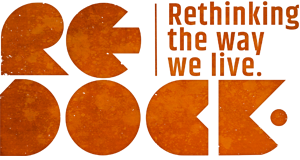Why is the weekend only two days a week? And why do we really still work from 9 to 5?
At a lot of companies similar changes have been made: responsibilities run straight through the organization, employees are given loads of freedom, and having fun at the office is considered a priority.
Correspondingly, the office has become an important place to meet and employers invest in health – in many ways.
Younger generations are desperately seeking intrinic motivation and always on the look out for that single job that will give them pleasure, satisfaction and meaningfulness.
My personal expectation is that this new culture will gain momentum in the years to come and we need tot consider consequences in both threats and opportunities.
For me, the most important opportunity is the fluidity of time.
The era that work and privacy was simply fenced by means of time and location belongs to the long last past, as working outside of office hours has become the new standard. But the Generations Y and Z are two steps ahead and barely see any difference between work and private time.
Finishing that important presentation on Sunday morning is not an issue, as you could be spending the Thursday afternoon at the beach. One day of parental leave is quite nice, but if needed the macbook is always there. Sports is a social activity with colleagues and packages are delivered at the office without a problem.
The work-life balance is therefore no longer bounded by time of location, it has become on-demand. The enormous rising of start-ups can also be explained by this development, as an important incentive to start a company is the freedom of choice when to work.
Trends like the share economy, Netflix, Airbnb, and Spotify underpin this fluidity of time: you only have “something”, when you want “something”.
Our structure of life is changing from Chronos to Kairos. According to Greek mythology, Chronos was the personification of time: Kairos was Zeus’s youngest son and the personification of the moment.
This changing from Chronos to Kairos offer 4 big benefits for the employee, the employer and – yes, you gotta think big – the complete society we live in today:
- Relaxation: Less frustration when working late or in the weekend. Because you know that time will be returned at a later time.
- Efficiency: Make maximal use of all days in the week: Generally speaking, the themeparks have shorter lines during the week and the highways less traffic during the weekend.
- Ability: Checking your email in when you want to, not when your iPhone tells you to.
- Flexibility: Both the employer as employee are not stuck in a pattern. This creates the flexibility to adjust to unforeseen events, such as that sudden deadline or a child with the flu.
You could argue that this fluidity of time would cause a decline of personal interaction due to different schedules, but actually the opposite is true. People actually tend to visit each other more often and prefer to work at places where the chance for spontaneous talks is bigger – the so-called serendipity factor. It is with this reason that most homeworkers prefer to work in a coffee-bar and the hubs in offices are the most popular places to settle.
However, this change also brings along a number of threats. Of course, there are some practical issues. Children daycare is mainly from 9AM to 6PM, which bounds new parents to strict schedules. Also, some job positions are quite unsuited for this kind of flexibility: the trauma surgeon can’t leave the ER and that bus won’t depart without its driver – for now at least.
However, the most important threat is self protection: if time is no longer the boundary of working, then what is? The amount of work is never ending, so when to stop working? Possible the up rise of the required coaching skills could protect employees from the infamous burn-out. I also know companies that shifted from a maximum amount of holiday days to a minimum of holiday days. All reasonable and fair means, but are these measures sufficient?
In this case, the answer lies in the question: fully adapt your system to the on-demand era. Work when you want to. Go swimming on Thursday morning. Meet that colleague on a Sunday and enjoy the sun when it is actually shining. Change your plans when there is heavy traffic. That very important email can also be answered at a later time.
Really, you won’t miss out on anything. Granted, it will take some effort and mainly perseverance, but the people around you will adjust and some will even adopt. It’s only a matter of time before we all have a 7-day weekend.
Sources:
https://architectenweb.nl/nieuws/artikel.aspx?ID=40529
https://decorrespondent.nl/5445/weg-met-controle-leve-de-intrinsiek-gemotiveerde-mens/1624256807580-e9745cb8
https://www.mt.nl/columns/cees-schenk/werk-prive-balans-is-een-belastend-concept/87854
The Positive Organisation – Quinn
Kairos – een Nieuwe Bevlogenheid, J.J. Hermsen
New York Times: http://www.nytimes.com/2013/04/07/opinion/sunday/engineering-serendipity.html
Wall Street Journal: https://www.executiveelite.com.au/single-post/2016/09/26/The-Science-of-Serendipity-in-the-Workplace
https://fd.nl/economie-politiek/1180698/potentiel-deeleconomie-neemt-toe




